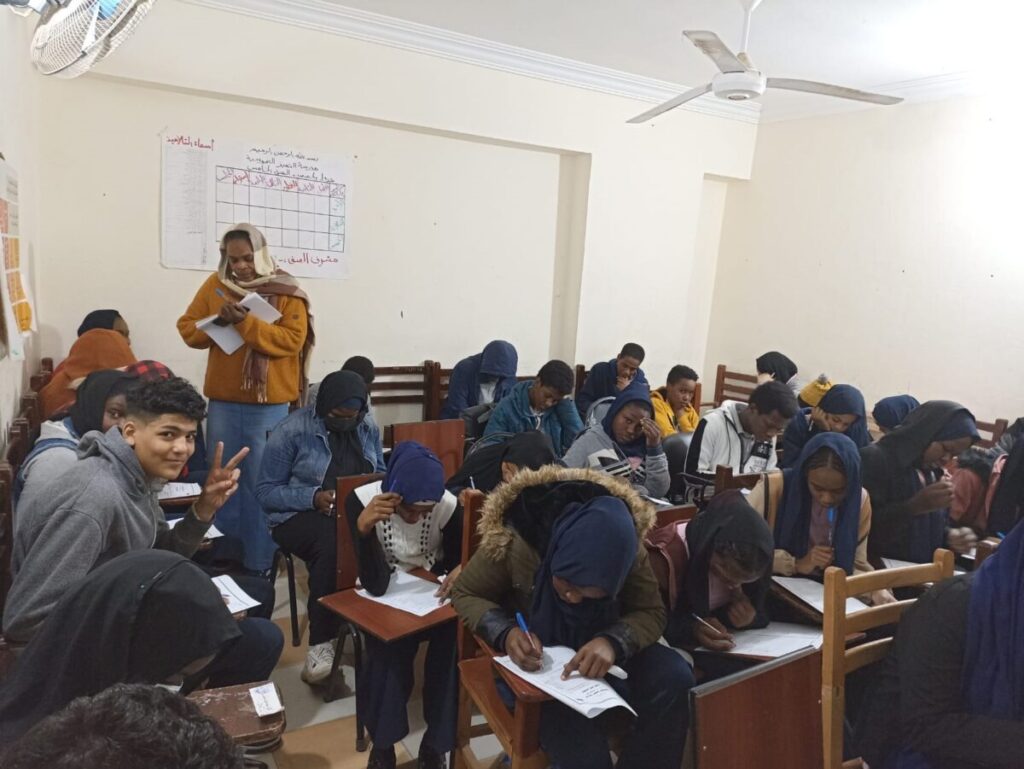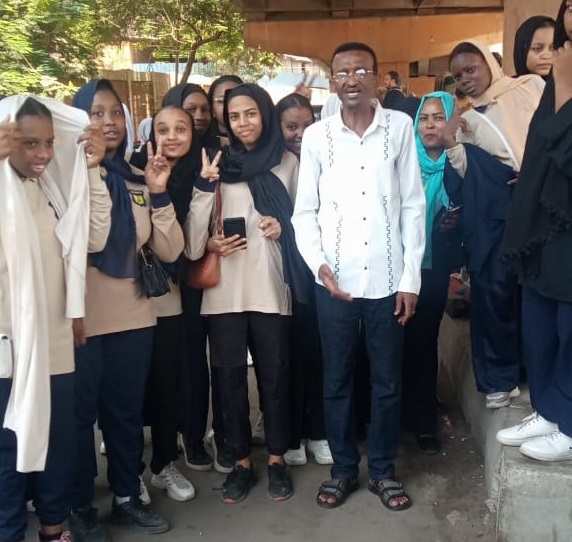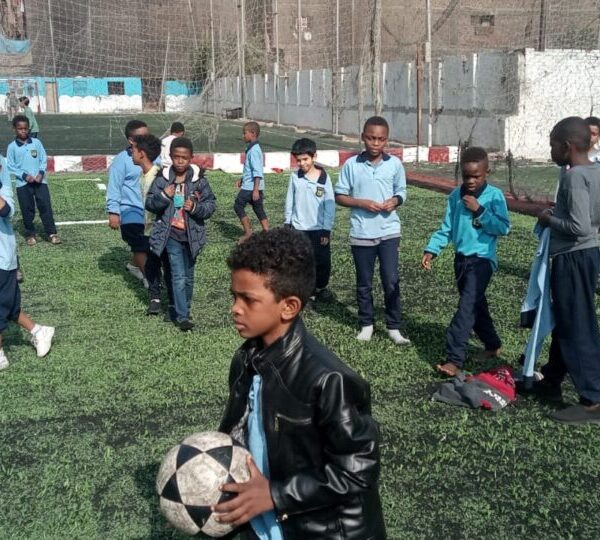The region is suffering from armed conflicts and sometimes fratricidal wars, with the main victims being civilians often forced to seek refuge in neighboring countries. Most of the time accompanied by children, they must face many challenges, from the language and cultural barrier, to the fear of expulsion due to missing identification documents. Added to this are the lack of medical services and the difficulty of schooling children. To assist them, the United Nations Refugee Agency (UNHCR) has created a new link aimed at facilitating registration procedures for new refugees. And some Egyptian NGOs have formed partnerships with private sector businessmen to help them integrate.
Egypt hosts over 756,000 refugees and asylum seekers from 62 different nationalities, a number that has increased by 24% over the past seven years. Last April, the Egyptian Prime Minister Mostafa Madbouli estimated the direct cost of hosting over 9 million people, refugees, and current residents in the country at over 10 billion dollars per year. Even though the Egyptian government has tightened the rules for reception and regularization, cooperation continues between the Egyptian government, the UNHCR, and NGOs to ensure a better life for refugees and immigrants currently residing in Egypt. On their part, NGOs are making every effort to provide basic services and offer employment opportunities to refugees and help them integrate.
In recent months, the majority of asylum seekers come from Sudan, Syria, and, to a lesser extent, South Sudan, Eritrea, Ethiopia, Yemen, Somalia, and Iraq. However, the tightening of rules and the end of the grace period for obtaining exemption (equivalent of a residence permit), on September 30th, by the General Administration of Passports and Immigration, raise concerns about significant waves of expulsion. Sudanese nationals are particularly targeted and are facing new challenges.
Suffering and Obstacles
The economic and security conditions place refugees under enormous pressure. The high cost of living and limited job opportunities also increase their stress and suffering.
Safaa Ali (her name has been changed to protect her anonymity), a displaced Palestinian, also fears being expelled from Egypt due to her violation of "residency controls." "I am afraid for the future of my children because I do not know where I will go next?" With these brief words, Safaa reveals the details of her current suffering, while emphasizing that she was forced to leave her city in the Tal al-Hawa neighborhood in Gaza, as the war destroyed her home and her husband lost his job. She explains that she entered Egypt through the Rafah crossing about three months ago with her three children, the youngest of whom is one year old.
Safaa continues: "I arrived in Egypt without a passport or identification papers, I only had 500 dollars on me. Upon my arrival, I obtained the official entry document while waiting for my new passport from the Palestinian embassy in Cairo. Then I went to the Passports and Immigration Department to transfer the stamps to the new passport, but I was surprised by a mandatory payment of 7,900 Egyptian pounds (147.74 euros) to complete the procedures for all four of us."
Osman Nabil, a Sudanese who fled the war in Khartoum, arrived in Egypt with some of his relatives. Obtaining legal residence and identity papers that grant him refugee status was complicated and stressful. "UNHCR is doing its best to facilitate the procedures. But due to the large number of refugees, it is taking a long time. I went to the UNHCR office in Egypt to legalize my status. A process that took over a year, to receive financial assistance of 500 Egyptian pounds (9.30 euros) per month. So, I have two jobs due to the increase in the cost of living," he adds.
UNHCR began its mission in Egypt in 1954. To cope with the influx of new refugees that Egypt has been experiencing since 2023, this agency has adjusted its tools and created a new website aimed at facilitating the registration procedures for new asylum seekers, especially Sudanese arriving for the first time.

Right to Education
On their side, Egyptian NGOs are helping refugees to integrate. This is the case of the Ard El Lewaa Education Center, founded in 2010 in Imbaba. It offers refugee children the opportunity to go to school while providing Arabic language classes for non-Arabic speakers. Mennallah Mohamed Mennallah, its director, explains: "We have children from seven nationalities - Sudan, Eritrea, Ethiopia, Chad, Somalia and Yemen. Our goal is to always ensure equal access to quality education for all refugee children and youth, regardless of legal status, gender, or disability."
The mission of the Ard El Lewaane Education Center goes beyond, with psychological support for students suffering due to their exile. We also accept children without identity papers so they can continue their education without waiting for the lengthy UNHCR procedures that can take over a year. The number of students in our center exceeds 400 people, and we receive a small symbolic amount from the refugees to pay for rent and teachers' salaries," highlighted Mennallah Mohamed Mennallah.
The private sector is not left behind
Initiatives have also been launched by some businessmen, notably to hire and train refugees so they can integrate. An agreement has thus been reached between the association "Initiatives for Refugees in Egypt" and the Egyptian Labor Force Complex (a kind of workers' union). As part of this initiative, the large Complex has offered opportunities to Sudanese refugees wishing to invest and get involved, particularly in the fields of agriculture, personal services, small street businesses, and education.

Cover Photo: @Mennallah Mohamed Mennallah
